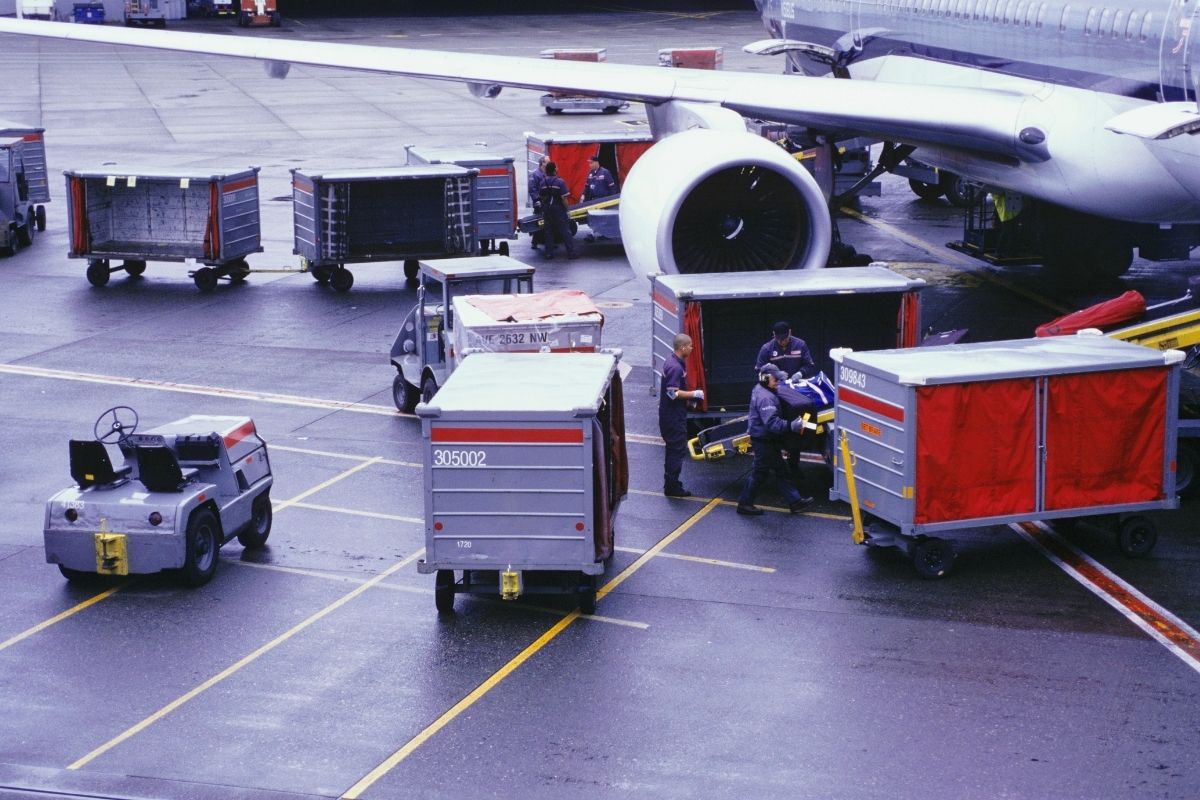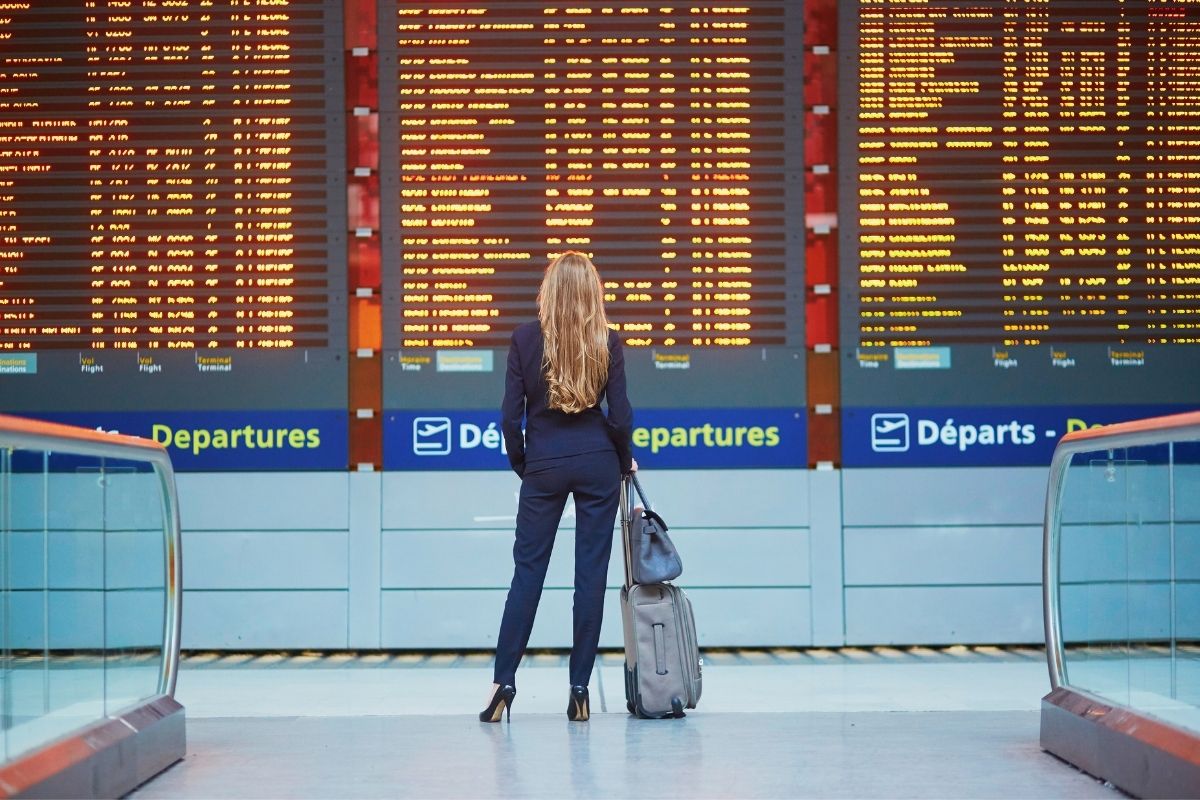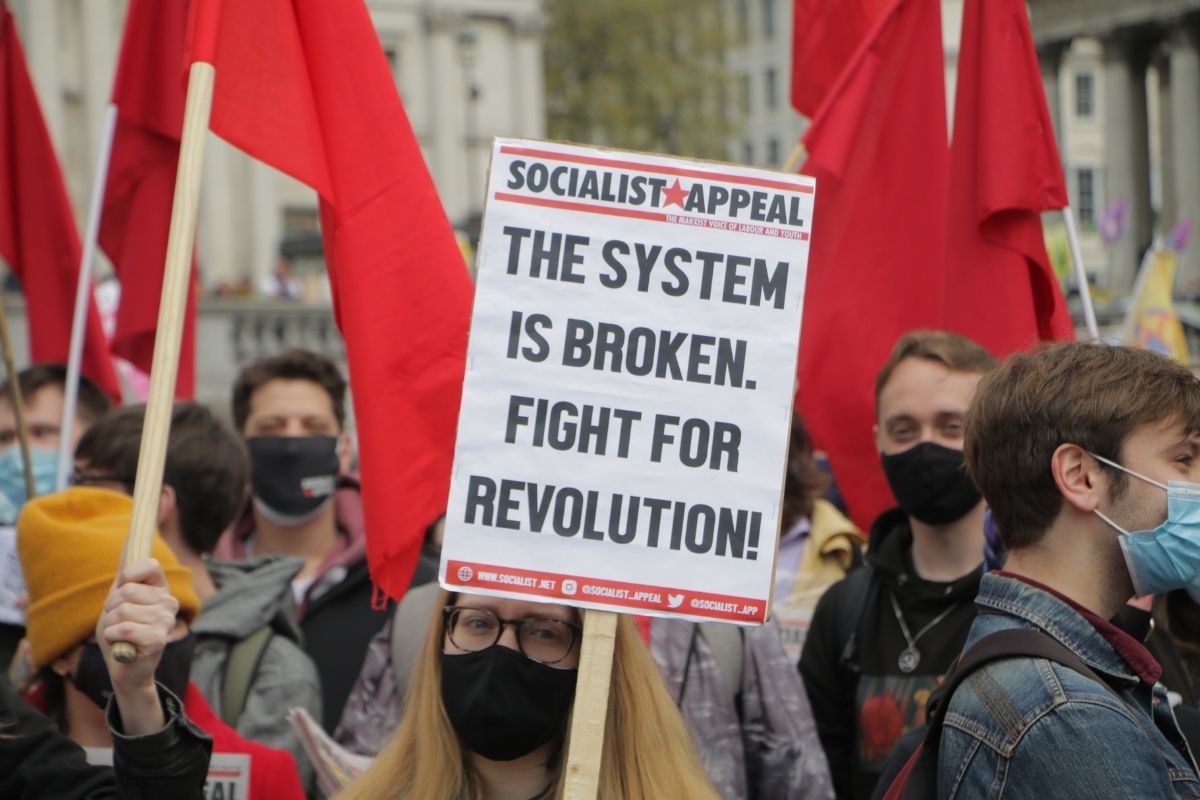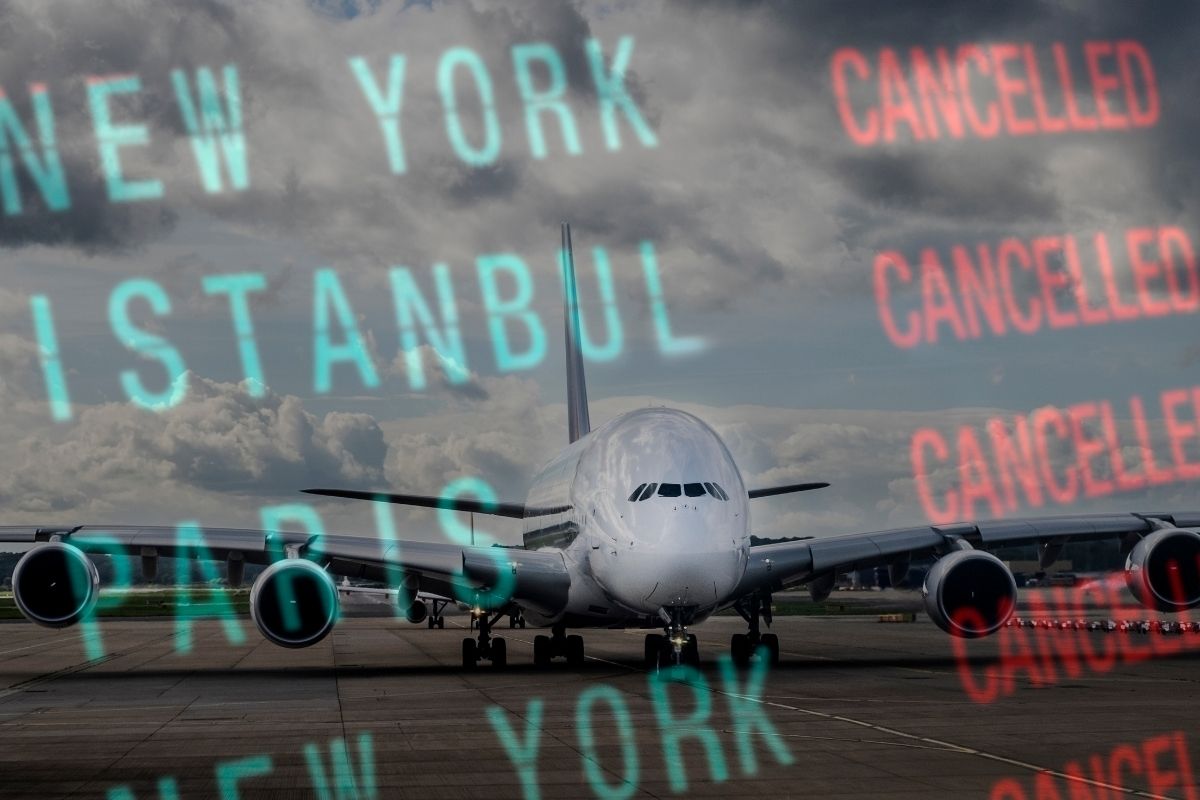This Easter has seen mayhem at Britain’s airports, as travellers and tourists look to escape the country for a post-lockdown holiday. The blame for this turmoil lies squarely with the bosses, who have profited as passengers and workers suffer.
In recent weeks, over the Easter holidays, airports across Britain and abroad have begun to collapse under the weight of a dramatic increase in tourism, causing chaos for holidaymakers.
Similar scenes have been witnessed at UK ports, meanwhile, with ferry services grinding to a halt in the wake of the brutal ‘jobs massacre’ by P&O bosses.
This disaster is the clear result of long-term profit-seeking and mismanagement by the capitalists.
In order to cut costs during the pandemic, travel industry bosses fired hundreds of thousands of workers worldwide.
According to research compiled by Oxford Economics, for example, there were 2.3 million fewer jobs in aviation by September 2021 compared with pre-Covid levels. This includes a 29% fall in airports staff.
As a result, following two years of mass sackings, these same bosses now find themselves woefully unprepared for the post-lockdown surge in tourism, with demand almost reaching pre-COVID levels.
Heathrow airport, for example, saw nearly 4.2 million travellers this March, compared to 6.5 million three years ago. Internationally, the number of scheduled flights has recovered to 89% of 2019 figures.
For passengers, this means hours-long queues, cancelled flights, and missing luggage – hardly a recipe for a calm and relaxing holiday.
Recipe for disaster

Britain’s third largest airport, Manchester, has been at the centre of this recent crisis, with videos emerging of holidaymakers scrambling over each other as they seek to make it through security.
To aid the understaffed security crew, Manchester Mayor Andy Burnham has sent in extra police officers and council transport workers. Burnham has claimed that this chaotic situation could last another two months.
The blame for this lies solely with the bosses at Manchester Airports Group (MAG): a holding company that is part-owned by Greater Manchester’s ten local authorities, and part-owned by Australian private investment firm IFM Investors.
At the beginning of the pandemic, MAG management and its external contractors sacked just under 2,500 workers, whilst reducing the pay of remaining staff by 10%.
At the same time, as demand for air travel plummeted, MAG claimed more than £100 million in state support to make up for their loss of profits.
This was the largest claim by any airport in the country. For comparison, Heathrow – Britain’s busiest airport – took £54 million; Gatwick took £42 million; and Liverpool took £2 million.
This dire financial situation was not felt at the top of the company, however. The highest-paid director at MAG received an increase in pay over this period, from £2m in 2020 to £2.5m the following year, whilst another jumped ship in search of “fresh career opportunities”.
On the ground, these cuts and redundancies have left the airport understaffed and underprepared for the current spike in travel.
A recent recruitment drive failed to replace the sacked staff, meanwhile, with Unite the Union rightly pointing out that workers do not want to sign up for incredibly low pay and harsh working conditions. These include shifts that begin at 3am, and reports of management refusing to allow breaks for employees.
Cuts and cancellations

Manchester airport, however, is not the exception but the norm. On 11 April, for example, the Monday before the Easter weekend, 64 domestic and European flights were cancelled at Heathrow.
Passengers there similarly face three-hour waiting times to get through security. Many, again, have missed their flights.
A spokesperson for the Immigration Service Union has stated that backroom staff have been offered bonuses to run the front desks, alongside volunteers. Workers from Scotland and Northern Ireland are likewise being brought in to prevent airport services from imploding.
It is clear that the £54 million in public money handed over to Heathrow has gone straight into the bosses’ pockets, not the running of the airport.
Luckily for UK travel bosses, their international rivals aren’t doing much better. Across the world, the aviation industry is in crisis mode, unable to cope with the deluge of pent-up demand for tourism.
Despite a recent influx of 500 new staff from across Ireland, for example, travellers at Dublin Airport are still required to arrive four hours ahead of departure.
In Australia, meanwhile, flights are landing without passengers’ luggage, with holidaymakers forced to wait up to five days to receive their suitcases.
This is partially due to a decision by Australian airline Qantas to outsource 2,000 baggage-handler jobs, in order to cut wage costs, which has contributed towards acute staff shortages at the country’s airports.
“We have lost over two million workers from the industry,” states Stephen Cotton, general secretary of the International Transport Workers’ Federation. “And now it’s the workers who are left doing the jobs of two or three people and who are bearing the brunt of the frustration and anger of the passengers.”
The system is broken

This mismanagement is not simply the fault of a few individuals, however, but is the product of a system that is dysfunctional, anarchic, and corrupt to its very core.
Public money is currently being used to prop up airports across the world. Not only has Manchester City Council stepped in to fill labour shortages, for example, but it is also responsible for funding hundreds of millions in loans to the region’s transport hubs.
Yet whilst holidaymakers suffer from stress, queues, and delays, and workers face deteriorating wages and conditions, the capitalists are laughing all the way to the bank, with their profits safely subsidised by the taxpayer.
The mass sacking at P&O Ferries has shown how far these unscrupulous ladies and gentlemen will go in order to protect their profits, with workers and the public left to pay the price.
The solution is clear: we must kick these parasitic bosses out of the travel industry, put organised workers in control, and run the sector on the basis of need, not profit.
We demand:
- No to privatisation and outsourcing! All airports and airlines – and the entire travel sector – to be brought into full public ownership, under democratic workers’ control and management.
- For fully-staffed airports! For a union-led recruitment drive to fill shortages on the basis of decent jobs, wages, and conditions.
- For a socialist plan of production and transport, with mass investment to provide affordable, sustainable travel for all!






